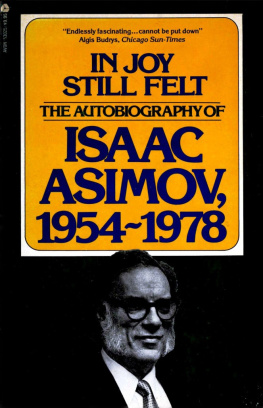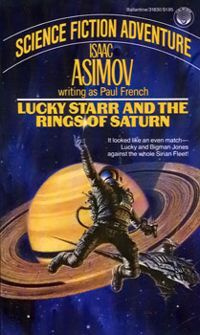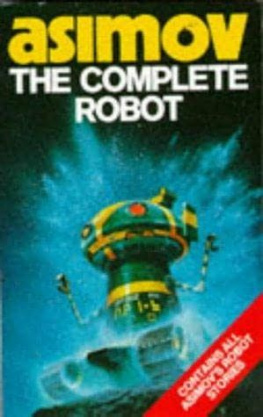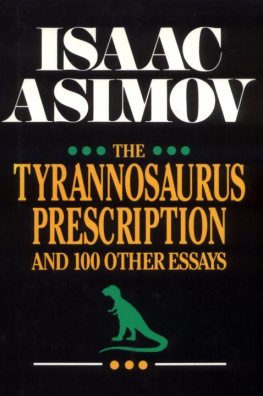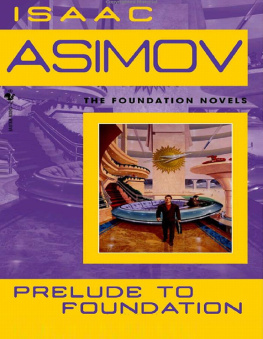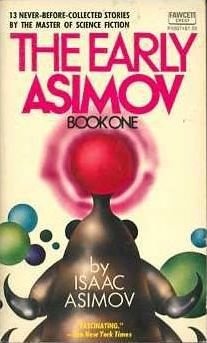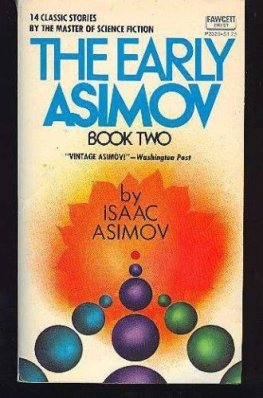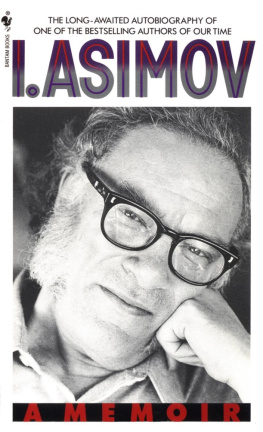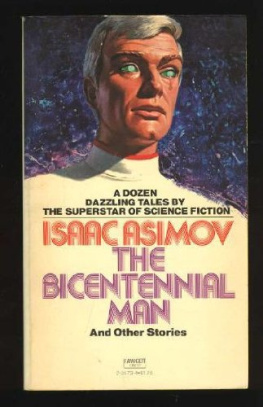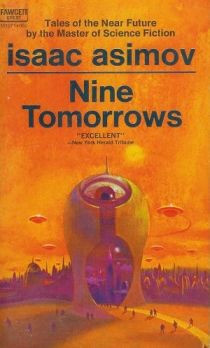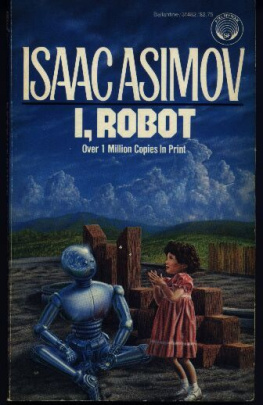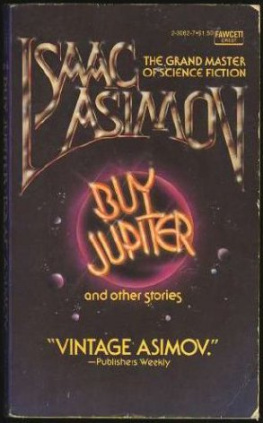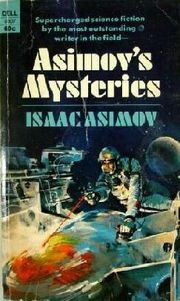Isaac Asimov - Its Such A Beautiful Day
Here you can read online Isaac Asimov - Its Such A Beautiful Day full text of the book (entire story) in english for free. Download pdf and epub, get meaning, cover and reviews about this ebook. year: 1954, publisher: Ballentine Books, genre: Detective and thriller. Description of the work, (preface) as well as reviews are available. Best literature library LitArk.com created for fans of good reading and offers a wide selection of genres:
Romance novel
Science fiction
Adventure
Detective
Science
History
Home and family
Prose
Art
Politics
Computer
Non-fiction
Religion
Business
Children
Humor
Choose a favorite category and find really read worthwhile books. Enjoy immersion in the world of imagination, feel the emotions of the characters or learn something new for yourself, make an fascinating discovery.

- Book:Its Such A Beautiful Day
- Author:
- Publisher:Ballentine Books
- Genre:
- Year:1954
- Rating:3 / 5
- Favourites:Add to favourites
- Your mark:
- 60
- 1
- 2
- 3
- 4
- 5
Its Such A Beautiful Day: summary, description and annotation
We offer to read an annotation, description, summary or preface (depends on what the author of the book "Its Such A Beautiful Day" wrote himself). If you haven't found the necessary information about the book — write in the comments, we will try to find it.
Its Such A Beautiful Day — read online for free the complete book (whole text) full work
Below is the text of the book, divided by pages. System saving the place of the last page read, allows you to conveniently read the book "Its Such A Beautiful Day" online for free, without having to search again every time where you left off. Put a bookmark, and you can go to the page where you finished reading at any time.
Font size:
Interval:
Bookmark:
On April 12, 2117, the field-modulator brake-valve in the Door belonging to Mrs. Richard Hanshaw depolarized for reasons unknown. As a result, Mrs. Hanshaws day was completely upset and her son, Richard, Jr., first developed his strange neurosis.
It was not the type of thing you would find listed as a neurosis in the usual textbooks and certainly young Richard behaved, in most respects, just as a well-brought-up twelve-year-old in prosperous circumstances ought to behave.
And yet from April 12 on, Richard Hanshaw, Jr., could only with regret ever persuade himself to go through a Door.
Of all this, on April 12, Mrs. Hanshaw had no premonition. She woke in the morning (an ordinary morning) as her mekkano slithered gently into her room, with a cup of coffee on a small tray.
Mrs. Hanshaw was planning a visit to New York in the afternoon and she had several things to do first that could not quite be trusted to a mekkano, so after one or two sips, she stepped out of bed.
The mekkano backed away, moving silently along the diamagnetic field that kept its oblong body half an inch above the floor, and moved back to the kitchen, where its simple computer was quite adequate to set the proper controls on the various kitchen appliances in order that an appropriate breakfast might be prepared.
Mrs. Hanshaw, having bestowed the usual sentimental glance upon the cubograph of her dead husband, passed through the stages of her morning ritual with a certain contentment. She could hear her son across the hall clattering through his, but she knew she need not interfere with him. The mekkano was well adjusted to see to it, as a matter of course, that he was showered, that he had on a change of clothing, and that he would eat a nourishing breakfast. The tergo-shower she had had installed the year before made the morning wash and dry so quick and pleasant that, really, she felt certain Dickie would wash even without supervision.
On a morning like this, when she was busy, it would certainly not be necessary for her to do more than deposit a casual peck on the boys cheek before he left. She heard the soft chime the mekkano sounded to indicate approaching school time and she floated down the force-lift to the lower floor (her hair-style for the day only sketchily designed, as yet) in order to perform that motherly duty.
She found Richard standing at the door, with his text-reels and pocket projector dangling by their strap and a frown on his face.
Say, Mom, he said, looking up, I dialed the schools co-ords but nothing happens.
She said, almost automatically, Nonsense, Dickie. I never heard of such a thing.
Well, you try.
Mrs. Hanshaw tried a number of times. Strange, the school Door was always set for general reception. She tried other coordinates. Her friends Doors might not be set for reception, but there would be a signal at least, and then she could explain.
But nothing happened at all. The Door remained an inactive gray barrier despite all her manipulations. It was obvious that the Door was out of order and only five months after its annual fall inspection by the company.
She was quite angry about it.
It would happen on a day when she had so much planned. She thought petulantly of the fact that a month earlier she had decided against installing a subsidiary Door on the ground that it was an unnecessary expense. How was she to know that Doors were getting to be so shoddy?
She stepped to the visiphone while the anger still burned in her and said to Richard, You just go down the road, Dickie, and use the Williamsons Door.
Ironically, in view of later developments, Richard balked. Aw, gee, Mom, Ill get dirty. Cant I stay home till the Door is fixed?
And, as ironically, Mrs. Hanshaw insisted. With her finger on the combination board of the phone, she said, You wont get dirty if you put flexies on your shoes, and dont forget to brush yourself well before you go into their house.
But, golly
No back-talk, Dickie. Youve got to be in school. Just let me see you walk out of here. And quickly, or youll be late.
The mekkano, an advanced model and very responsive, was already standing before Richard with flexies in one appendage.
Richard pulled the transparent plastic shields over his shoes and moved down the hall with visible reluctance. I dont even know how to work this thing, Mom.
You just push that button, Mrs. Hanshaw called. The red button. Where it says For Emergency Use. And dont dawdle. Do you want the mekkano to go along with you?
Gosh, no, he called back, morosely, what do you think I am? A baby? Gosh! His muttering was cut off by a slam.
With flying fingers, Mrs. Hanshaw punched the appropriate combination on the phone board and thought of the things she intended saying to the company about this.
Joe Bloom, a reasonable young man, who had gone through technology school with added training in force-field mechanics, was at the Hanshaw residence in less than half an hour. He was really quite competent, though Mrs. Hanshaw regarded his youth with deep suspicion.
She opened the movable house-panel when he first signaled and her sight of him was as he stood there, brushing at himself vigorously to remove the dust of the open air. He took off his flexies and dropped them where he stood. Mrs. Hanshaw closed the house-panel against the flash of raw sunlight that had entered. She found herself irrationally hoping that the step-by-step trip from the public Door had been an unpleasant one. Or perhaps that the public Door itself had been out of order and the youth had had to lug his tools even farther than the necessary two hundred yards. She wanted the Company, or its representative at least, to suffer a bit. It would teach them what broken Doors meant.
But he seemed cheerful and unperturbed as he said, Good morning, maam. I came to see about your Door.
Im glad someone did, said Mrs. Hanshaw, ungraciously. My day is quite ruined.
Sorry, maam. What seems to be the trouble?
It just wont work. Nothing at all happens when you adjust co-ords, said Mrs. Hanshaw. There was no warning at all. I had to send my son out to the neighbors through thatthat thing.
She pointed to the entrance through which the repair man had come.
He smiled and spoke out of the conscious wisdom of his own specialized training in Doors. Thats a door, too, maam. You dont give that kind a capital letter when you write it. Its a hand-door, sort of. It used to be the only kind once.
Well, at least it works. My boys had to go out in the dirt and germs.
Its not bad outside today, maam, he said, with the connoisseur-like air
of one whose profession forced him into the open nearly every day. Sometimes it is real unpleasant. But 1 guess you want I should fix this here Door, maam, so Ill get on with it.
He sat down on the floor, opened the large tool case he had brought in with him and in half a minute, by use of a point-demagnetizer, he had the control panel removed and a set of intricate vitals exposed.
He whistled to himself as he placed the fine electrodes of the field-analyzer on numerous points, studying the shifting needles on the dials. Mrs. Hanshaw watched him, arms folded.
Finally, he said, Well, heres something, and with a deft twist, he disengaged the brake-valve.
He tapped it with a fingernail and said, This here brake-valve is depolarized, maam. Theres your whole trouble. He ran his finger along the little pigeonholes in his tool case and lifted out a duplicate of the object he had taken from the door mechanism. These things just go all of a sudden. Cant predict it.
He put the control panel back and stood up. Itll work now, maam.
He punched a reference combination, blanked it, then punched another. Each time, the dull gray of the Door gave way to a deep, velvety blackness. He said, Will you sign here, maam? and put down your charge number, too, please? Thank you, maam.
Font size:
Interval:
Bookmark:
Similar books «Its Such A Beautiful Day»
Look at similar books to Its Such A Beautiful Day. We have selected literature similar in name and meaning in the hope of providing readers with more options to find new, interesting, not yet read works.
Discussion, reviews of the book Its Such A Beautiful Day and just readers' own opinions. Leave your comments, write what you think about the work, its meaning or the main characters. Specify what exactly you liked and what you didn't like, and why you think so.

